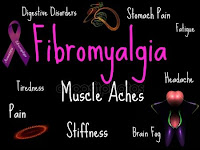Fibromyalgia, a chronic disease that causes pain and swelling in more than a dozen points all over the body, affects more than 5 million people. Because doctors are still unsure of the cause of fibromyalgia, treatment can be frustrating (and often a process of trial and error).
That’s why many patients are taking matters into their own hands and experimenting with alternative treatments, including dietary changes. Forty-two percent of fibro patients reported that symptoms worsened after eating certain foods, and though much of the research is in its preliminary phases, there’s some evidence that simple diet tweaks may ease fibro pain.
That’s why many patients are taking matters into their own hands and experimenting with alternative treatments, including dietary changes. Forty-two percent of fibro patients reported that symptoms worsened after eating certain foods, and though much of the research is in its preliminary phases, there’s some evidence that simple diet tweaks may ease fibro pain.
Follow Diet rules for fibromyalgia Disease Care-
Include these foods in your daily diet to get help in healing many symptoms of fibromyalgia (Consult your doctor before changing your diet if you have an allergy to any food given below ).1. Load up on vitamin D
Many adults are deficient in vitamin D, to begin with, but this sunshine vitamin can be vital to fibro patients. Vitamin D deficiency can mimic some of the symptoms of fibromyalgia. All patients should be screened for deficiency, says, Physicians. Studies show that vitamin D deficiencies can cause bone and muscle pain, and upping levels of this hard-to-get vitamin may help. A study found that pain patients with low levels of vitamin D required almost double the dose of painkillers. Holton recommends taking a supplement, especially during the wintertime.2. Avoid additives
Common food additives, like monosodium glutamate (MSG) and aspartame, can act as a chemical group that has the ability to activate neurons that increase sensitivity to pain. Anecdotally, avoiding these additives can help in fibromyalgia symptoms as many studies of fibromyalgia patients found that eliminating MSG and aspartame resulted in a reduction of fibromyalgia symptoms. It may be worth trying if you notice your symptoms worsen after Chinese takeout or too many diet drinks.








